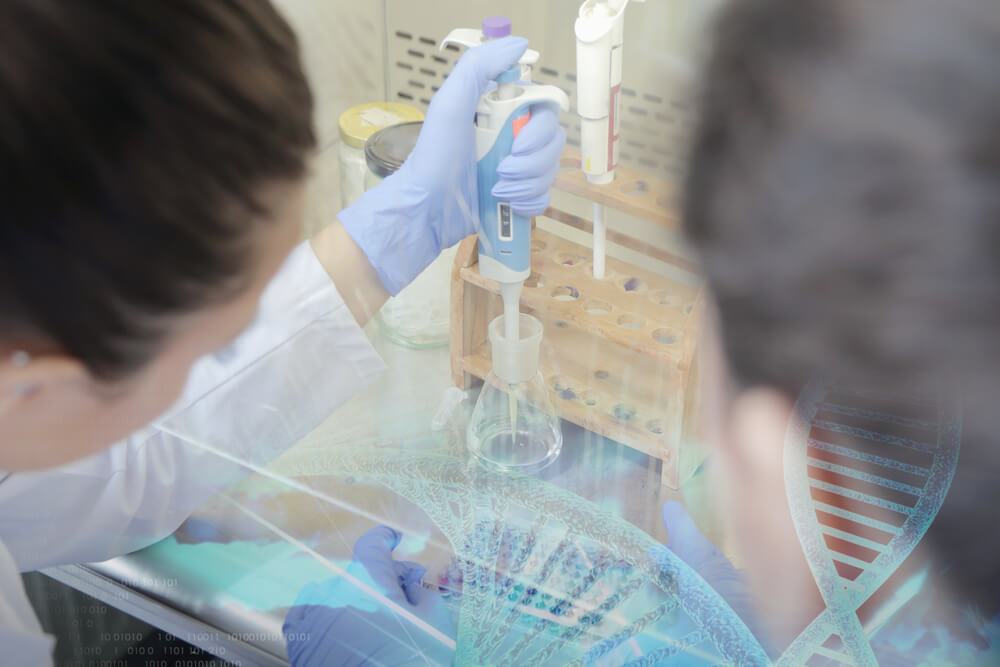What is a Compounding Pharmacy Technician?
What is a Compounding Pharmacy Technician? As you research more about becoming a pharmacy technician, you'll discover that the vocation is more diverse than you might have thought, and that there a number of different career options that open up to certified pharmacy technicians. One of those is a compounding pharmacy technician.

What is Compounding in Pharmacy?
Compounding in pharmacy is the act of creating and mixing the medications themselves. It has been a practice in pharmacies all over the world for centuries.
In the 21st century compounding pharmacies in the retail section are rarer, as most drugs are mass manufactured and shipped to pharmacies to be dispensed to patients 'as-is'.
However, the demand for 'customized' medication is on the rise again, as there is an increasing need for it. This is because often a standard medication cannot take into account individual patient needs due to allergies, other health conditions or the need for a medication to be dispensed in a different form. And with a rise in the demand for compounding services there is a corresponding rise in the need for additional compounding pharmacy technicians.
What Are the Two Types of Compounding?
In the 21st century world of modern pharmacy practices there are two types of compounding that might be performed. Some drugs are compounded for strictly medical reasons, while others are altered because the patient has personal requests or preferences.
The latter is common to pediatrics, as certain medications - especially antibiotics - can be custom compounded so that a picky child will take a vital medication they are dismissing as bad tasting. Adding a pleasing flavor via compounding can help ensure they actually take the medications they need. Some pain medications can also be custom compounded to remove elements that are known to be addictive, which allows, in some cases, recovering substance abuse patients to take them.
What is a Compounding Technician?
A pharmacy technician who chooses this subspecialty will usually be known as a compounding technician or compounding pharmacy technician. They are pharmacy technicians - most employers prefer they be certified pharmacy technicians - who work under the direct supervision of a compounding pharmacist.
Also Read: What is a Nuclear Pharmacy Technician?
What Does a Compounding Technician Do?
These specialist techs are usually the people responsible for measuring, packaging and labelling compounded medications, and they perform much of the patient contact. In some smaller compounding pharmacies, they may even help with the compounding process itself under the careful eye of a supervising pharmacist.
In addition, they usually undertake the more 'routine' responsibilities almost all pharmacy technicians in any setting do; checking insurance coverages, billing for medications, obtaining pre-authorizations and generally helping to make sure the pharmacy is well-stocked, clean and organized.
What Medications are Usually Compounded?
Almost any medication can be compounded, but some are more commonly 'altered' than others, including all the following:
Pain Medications
Although they can be very effective narcotic pain relievers are known to be highly addictive and some other pain medications can have some very nasty side effects too. Via pharmaceutical compounding patients can get medication that will relieve pain but is customized to take into consideration a previous addiction concern or bad reaction to a certain ingredient.
Dermatological Medications
Medications can be very helpful in treating more serious skin concerns like cystic acne, eczema, psoriasis or rosacea. However, these medications often cause unwanted side effects like peeling or overly dry skin, redness or irritation. By compounding a formula especially for an individual patient's unique skin these side effects can be reduced without compromising the medication's effectiveness.
Pediatric Medications
A child's health can be put in serious jeopardy if they refuse to take a medicine because it tastes bad, or if it contains an ingredient - often a component of coloring or flavoring - they are allergic to. Some kids also have a very hard time taking medication in certain forms, especially large pills.
By making use of compounding, pediatric medications can be given a better flavor, they can have possible allergens removed, or they can be dispensed in a different form, for example, a liquid instead of a pill.
Veterinary
Often people forget that animals need prescription medication too, and that pharmacy technicians can also be employed by veterinary pharmacies.
Compounding is very common in this setting as while lots of drugs can treat both humans and animals they can't be dispensed in the same form, as the human versions of medications are usually far too potent for pets to take and even those drugs manufactured specifically for pets can contain things certain furry friends may not tolerate well. Compounding is also used to transform medications into treats, chews and other more animal friendly forms.
Also Read: The Pros & Cons of Becoming a Pharmacy Technician
What Does Compounding Pharmacy Technician Training Involve?
In some states anyone who works as a pharmacy technician must be certified, which means they have taken, and passed, a formal certification exam, either the PTCE or the ExCPT and received the designation of CPhT.
This isn't required in all states, but increasingly employers prefer it and that is certainly true of compounding pharmacies.
To complete a pharmacy technician exam, candidates must be high school graduates or hold a GED, meet minimum standards regarding their criminal history and pass drug tests and, in some cases, meet vaccination requirements. In recent years, both the Pharmacy Technician Certification Board - who administer the PTCE and the Health Career association, who set the ExCPT require that candidates complete an approved training course before they can take their certification exam.
Many pharmacy technician certification programs do cover the basics of compounding, and in the case of Associate Degree programs it is usually covered in more depth. Much of the specific training in compounding is an on-the-job undertaking.
However, the foundation that completing formal training and certification always proves invaluable to anyone interested in specifically becoming a compounding pharmacy technician, whether it is mandatory for them to have it in their state or not.
Do I Need an Associate Degree to Become a Compounding Pharmacy Technician?
While some associate degree programs do cover compounding in greater depth than shorter certificate programs obtaining one is not a must to work as a compounding pharmacy tech.
The basics needed are covered by almost all approved training programs and, with that foundational knowledge most employers are happy to provide the on-the-job training that might be needed. Many compounding pharmacists see what they do as something of an art - which in some ways it is - and are happy to share their expertise with keen pharmacy technicians as they go.
What is an Alternative Pharmacy Technician Specialty?
One definition of alternative pharmacy we've just covered is a veterinary pharmacy. The same training and knowledge a certified pharmacist has translates, with on the job training - very well to the 'animal kingdom'.
The customer service aspect of the job does still involve lots of human interaction though, so the training in this particular soft skill that pharmacy technician training programs provide will still be very helpful.
Another definition refers to special pharmacies that serve patients with cognitive, intellectual and developmental disabilities. Pharmacy compounding plays a big role in the services these pharmacies provide, as often dispensing medication in specialist forms is one of the most valuable services they can offer.
See Related: How To Become a Veterinary Pharmacy Technician
